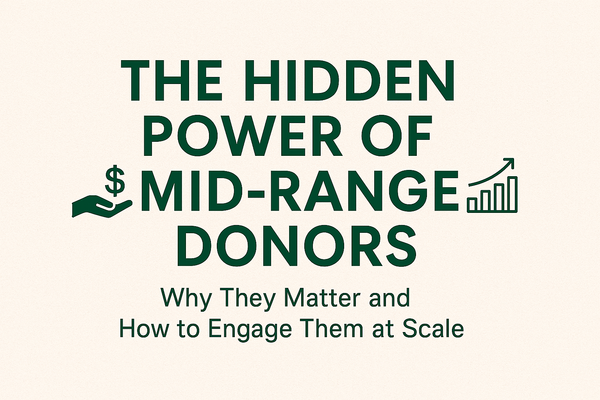Do You Really Need an ERP? A Guide for Nonprofit CFOs

Do You Really Need an ERP? A Guide for Nonprofit CFOs
If you're a nonprofit CFO, chances are you've asked yourself this question at least once: Do we really need an ERP system? With limited budgets and competing priorities, investing in new technology can feel risky. But the right ERP (Enterprise Resource Planning) system isn’t just a tech upgrade—it’s a strategic decision that can transform how your organization operates.
So how do you know if it’s time?
Signs You’ve Outgrown Your Current Systems
Many nonprofits rely on a patchwork of spreadsheets, accounting software, and manual processes. These tools may have worked when your organization was smaller, but as you grow, they can start to show their limits.
If you’re experiencing any of the following, it may be time to consider ERP:
✅Your finance team spends hours reconciling data across systems.
✅Grant and donor reporting is time-consuming and error-prone.
✅You lack real-time visibility into budgets, spending, or forecasts.
✅Audits are stressful and require manual data gathering.
✅Your systems don’t scale with your growth or complexity.
ERP systems solve these problems by integrating your core functions—finance, HR, procurement, and more—into one platform.
That means fewer silos, cleaner data, and faster decision-making.
What ERP Can Do for Nonprofit Finance Leaders
ERP gives you a single source of truth. You can track restricted funds, automate reporting, and manage compliance with ease. It helps you shift from reactive to proactive financial management. And because modern ERP systems are cloud-based, they’re accessible, scalable, and built for collaboration.
You’ll be able to support your team better, respond to funders faster, and make strategic decisions with confidence.
When ERP Might Not Be the Right Fit—Yet
ERP is powerful, but it’s not for everyone. If your organization is very small, has simple financial needs, or is still building foundational processes, it might be premature. In those cases, strengthening your current systems and workflows may be a better first step.
But if you’re growing, managing multiple funding sources, or preparing for more complex reporting and compliance needs, ERP can be a game-changer.
Final Thoughts
ERP isn’t just about software—it’s about building a foundation for sustainable growth. For nonprofit CFOs, it’s a way to gain control, improve transparency, and free up time for strategic work.
If you’re wondering whether ERP is right for your organization, let’s talk. I’d be happy to help you assess your needs and explore what’s possible.




